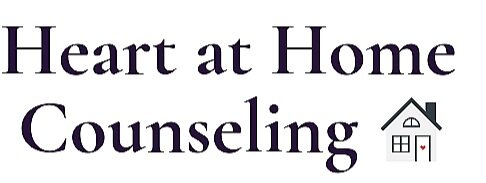About Valerie Hodgskiss
Life had a lot to teach me before I was ready to be a therapist. I was that bookish kid who read Psychology Today in the library as a high school student, but I didn’t have a solid sense back then, that counseling would be my calling eventually. First, I needed to go through four years of college with a dream of being an opera singer, and I needed to learn how to fail and get on with life. And then I needed to find a real job; so I got a Master’s degree in Language Education and became an English teacher. Interestingly, my favorite part of that job was when a student would stay after class to talk to me one-on-one about their problems. Life was trying to tell me something, but I wasn’t ready to hear it yet.
And then I got married became a Mom (and still am a Mom—it’s the job you never really quit), and I stayed home for a few years to homeschool my four kids. Life at home then was full of mysteries, like what, exactly IS the internal propulsion system that causes Cheerios to migrate literally everywhere, once you serve them to a child? And what causes my mother to come out of my mouth when I’m talking to my teenager?
Those at-home years were also full of learning about what happens to families when mental illness goes untreated. In 2012, life had another, more difficult lesson to teach me, a lesson about being a survivor left behind by the suicide of my husband. It was in that survival period that I made the decision to finally listen to what life was telling me, and go back to school for my second Master’s degree, this time in the field of Counseling Psychology.
While I was in grad school at night, my kids were busy learning things like, if you accidentally set fire to the toaster while making raisin toast, the fire extinguisher is located right next to the stove and makes short work of those flaming raisins. And, Mom will only lose her cool for a minute, if you emphasize that the fire is already out.
From that first day of class in 2013, through each day that I work as a therapist, I am keenly aware that I have been given an incredible gift of time and second chances in this life. My work is informed by my firm belief that pain is inevitable, but healing and growth are possible for all of us. (And raisin-bread should come with safety training.)
After getting my Masters Degree in Counseling Psychology from John F. Kennedy University in 2015, I did an internship with Head Start, where I sat on the floor with 3 and 4 year olds, and did play therapy, or I met with struggling moms and preschool teachers to help them understand the challenging small humans in their lives. My next internship was in the Psychiatry Department at Kaiser Permanente Medical Center in Vallejo, where I had the privilege of seeing adults, teens, and children, treating anxiety, depression, school problems, self-injury, parenting stress, suicidal thinking, and relationship problems. That experience provided me the opportunity to work with a tremendous variety of people facing some life-altering challenges. I remain awed by the resilience and determination of the people in my caseload and the compassionate expertise of my colleagues there. I stayed on with Kaiser, as a full-time staff member, in Vacaville, after I got licensed, because the work was so incredibly interesting. I still work part-time for Kaiser, closer to home, while running my private practice counseling office two days a week.
As of 2018, I am happily re-married to a kind and gentle man who cheers me on and is helping me finish raising my four kids (and two dogs, as of this writing). We sing together in church choir every week, which keeps me in touch with my long-ago fantasy of being a singer.
I’m an ally for LGBTQ folk, as well as allied with body positivity and progressive Christianity. In the past I’ve been privileged to be asked to lead some church-group training for lay ministers who were interested in increasing their understanding and welcome of trans and non-gender-conforming folk.
I use DBT, CBT, Narrative Therapy, and Acceptance and Commitment Therapy (ACT), as well as other evidence-based treatment modalities to help adults throughout the lifespan, as well as teens, and parents, including moms experiencing postpartum depression and anxiety, to get back on track with the life they want to lead.
Studies show that the single biggest factor in the effectiveness of therapy, is the connection with your therapist. If you feel safe, encouraged, supported and gently challenged, you will begin to make changes, and those changes lead into the life you were meant to live. My goal is to help you talk about what's stressing you out, getting in your way, weighing you down, keeping you stuck, and to help you understand yourself and treat yourself with kindness. From there, we can look at patterns of thought and behaviors that are interfering with your relationships, including your relationship with yourself.

